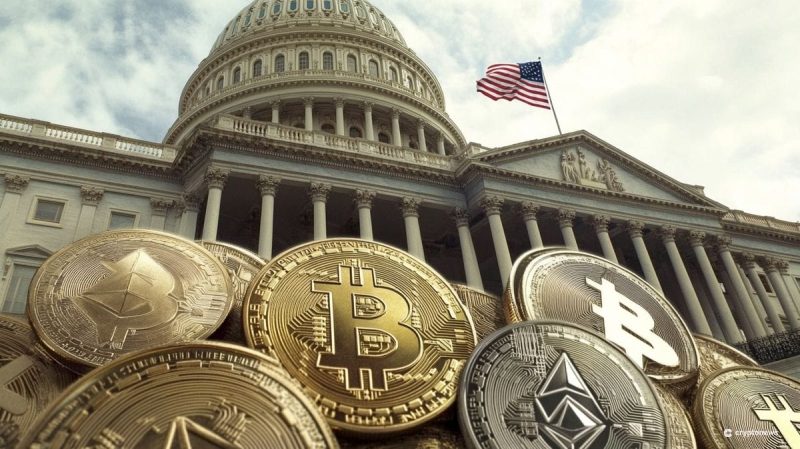The Digital Chamber, a leading advocate for digital assets in the United States, is urging lawmakers to back the Bitcoin reserve bill proposed by Wyoming Senator Cynthia Lummis. The organization believes this move could solidify the U.S. as a global leader and provide economic stability.
Advocacy Efforts for the Bitcoin Act of 2024
On August 1, the Digital Chamber announced via X that it is delivering letters to every U.S. Senator, advocating for the passage of the “Boosting Innovation, Technology, and Competitiveness through Optimized Investment Nationwide Act of 2024,” also known as the Bitcoin Act of 2024. Introduced on July 31, this bill proposes that the U.S. Treasury establish Bitcoin vaults and acquire 1 million Bitcoins over five years.
The Digital Chamber’s Chief Policy Officer, Cody Carbone, emphasized in the letter that Bitcoin’s limited supply—capped at around 21 million units—makes it resistant to inflation. He argued that by incorporating Bitcoin into the national reserves, the U.S. could reduce its reliance on traditional fiat currencies, thereby creating a more resilient financial system.
The Case for Bitcoin Amidst Economic Concerns
The advocacy group’s push comes at a time when the U.S. national debt has surpassed $35 trillion. The Digital Chamber believes that adding Bitcoin to the nation’s balance sheet could act as a hedge against inflation and economic volatility. The letter outlines how diversifying reserves with Bitcoin could help the country navigate future economic challenges.
Broader Political Support
Senator Lummis is not alone in her support for incorporating Bitcoin into U.S. financial strategy. During the recent Bitcoin 2024 conference in Nashville, independent presidential candidate Robert F. Kennedy Jr. pledged to buy 500 Bitcoins daily for the U.S. Treasury until the national holdings reach at least 4 million BTC. Republican candidate Donald Trump also expressed interest in building a strategic national Bitcoin reserve.
In addition to these individual efforts, there has been growing bipartisan support for cryptocurrency-related legislation. On May 22, the Financial Innovation and Technology for the 21st Century Act passed the House with significant support from both Democrats and Republicans. However, the bill is currently awaiting a Senate vote.
The U.S. Congress recently voted to overturn the U.S. Securities and Exchange Commission’s Staff Accounting Bulletin 121 (SAB 121) rule, which would have facilitated banks’ custody of cryptocurrency exchange-traded products. Although the effort was vetoed by President Joe Biden and failed to achieve a two-thirds majority in the House, it highlights the increasing political interest in cryptocurrency regulation.
